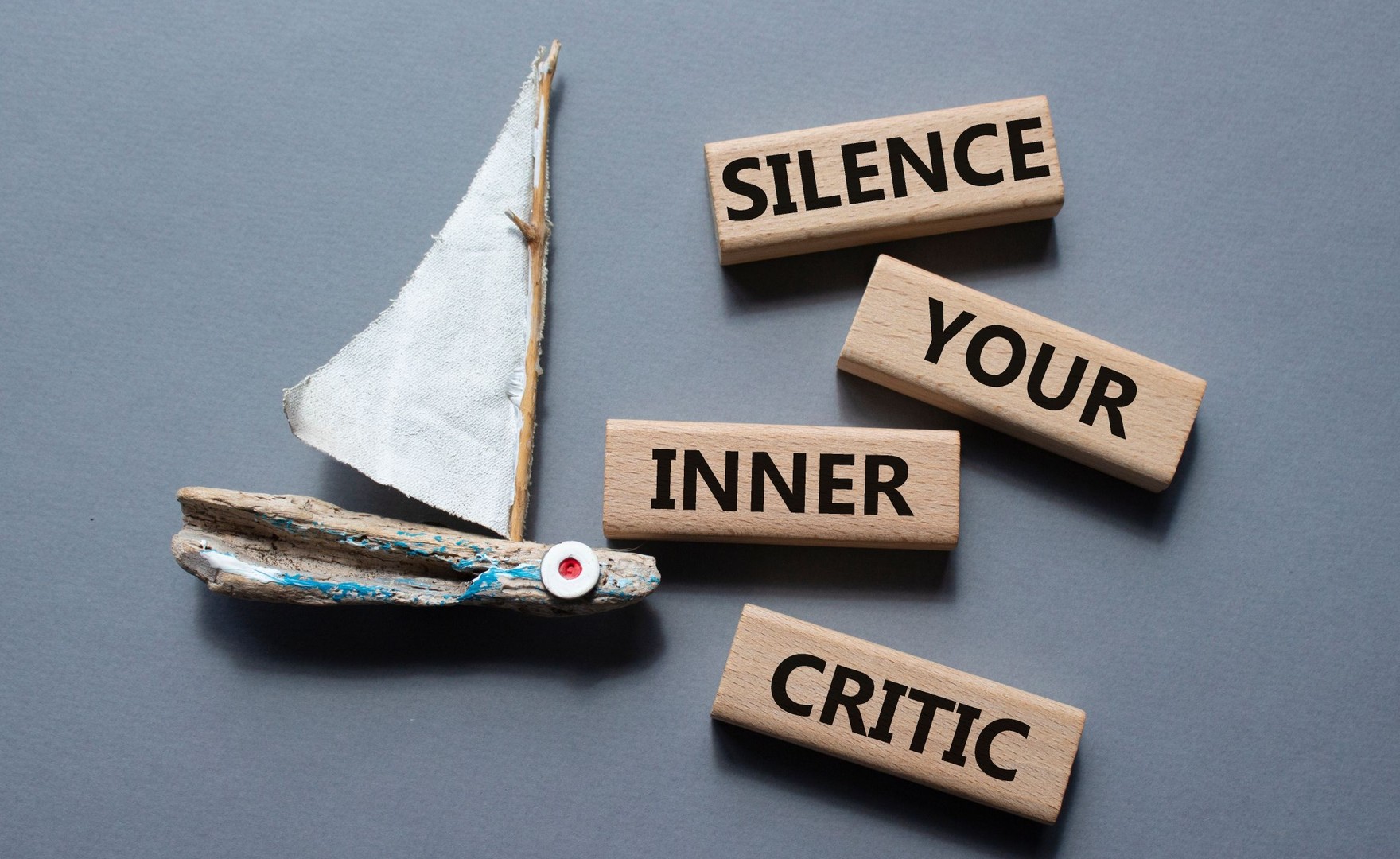The AoEC’s consultancy services are offered to organisations and feature a portfolio of tailored coaching based solutions and products that can serve to address a multitude of issues facing both large and small businesses today.
“Why am I such a loser!” – Time to change the narrative
22nd July by Karen Smart
Reading time 3 minutes

The above is one of many horrible things I might say to myself on a bad day, or when I forget something, or put my foot in it, or double-book myself. A great gift of training as a coach, for me, was the gradual realisation that this isn’t just me. I am not the only one who constantly berates herself for being stupid. Numerous eminent coaches have also observed the impact of coaching skills in support of overcoming such negative self-talk.
Recognising the inner critic
Many of you will know that Sir John Whitmore drew on Tim Gallwey’s ‘The Inner Game of Tennis’ to develop distraction techniques that quiet the inner voice.
Time and again, I see this in those new to coaching or training as coaches: the tendency to jump into savage self-critique rather than pausing and giving equal footing to the inner champion.
Often, in a mentor coaching session (where we review coaching sessions against the competencies defined by credentialing bodies), I might ask someone to tell me what went well, and they immediately focus on all the “terrible” things they did or didn’t do.
Giving voice to the inner champion
It is essential to listen to our inner champion - the voice that supports us and helps us in our quest to learn. Training as an executive coach was, for me, a pathway to greater self-kindness, acceptance, and even self-love. Yes, I am still the same old Karen who forgets her coat, takes the wrong turning, loses her keys, or miscommunicates, but I am also kind with positive intentions.
Nelda Andersone Ph.D., in her Psychology Today article ‘Understanding the Inner Critic’, provides helpful insights and points to its impact on high-achievers. Many of us have experienced an education system that trained us in a deficit mentality - those of my age remember the horror of the teacher’s red pen. This system inadvertently taught us to focus on closing the deficit at the expense of recognising what was good in what we did. Corporate life also often emphasises deficit psychology in managing talent, with appraisals focusing on closing gaps rather than harnessing and galvanising people’s talents.
The impact of training as a coach on negative self-talk
One of the great benefits in training as an executive coach is the inner work involved. Experiential coach training offers several benefits:
1. Realising you are not alone - many others share a negative self-talk
2. Gaining a deeper awareness and understanding of our individual identity, strengths and development needs, helping us contribute our best at work
3. Growing through being coached by peers
4. Finessing and growing in confidence in giving and receiving effective feedback, balancing strengths and development opportunities
5. Developing the habit of reflecting on what went well alongside things we might want to change.
I am grateful for many colleagues on my personal journey. After performing poorly in a coaching demonstration, my mentor coach invited me to re-watch the video. The thought of watching it made me shudder. However, remembering to balance self-critique with self-recognition, I saw how well I did in the first part and how effectively I demonstrated some competencies. I also noticed how I lost concentration towards the end and its impact on my relationship with the client. This provided helpful perspective. With my mentor coach’s support, I created a personal strategy for my development and management of my state.
A helpful companion to my learning, was Duncan Coppock’s book, “The Self Factor The Power of Being You”. This section spoke to me strongly – he writes:
“Coming back to your self-talk, choose to treat yourself with respect, not only in what you say to yourself but in how you say it. Remember that this [is sic] not something that you ‘should’ do. It is something that you want to do because you care about your quality of life. An interesting experiment for a week is to choose not to criticize yourself. You can still decide that you want to do something differently or better, but give yourself feedback positively and constructively instead of with the put-down of criticism.”
This recommendation helped me immensely and has stayed with me much longer than a week – acknowledging that for me, at least, this is always a work in progress, and that’s alright too!
Empower your managers with coaching skills training on the Coaching as a Line Manager Certificate
Interview
Practitioner Diploma / “I found the approach combined rigour with warmth and compassion”
16th December 2025 by Lee Robertson
With a career rooted in drama therapy and over 25 years designing experiential learning for leading consultancies, Alison Seddon made…
Article
Existential coaching: A coaching model for uncertain times
16th December 2025 by John Gray
What if you knew there was a coaching model which is supremely comfortable amidst themes of complexity, uncertainty and concern.
Article
How coaching helps leaders discover their style and lead with confidence
16th December 2025 by Lee Robertson
Leadership isn’t about having a title or authority. It’s about influence, trust and the ability to guide others through complexity.…